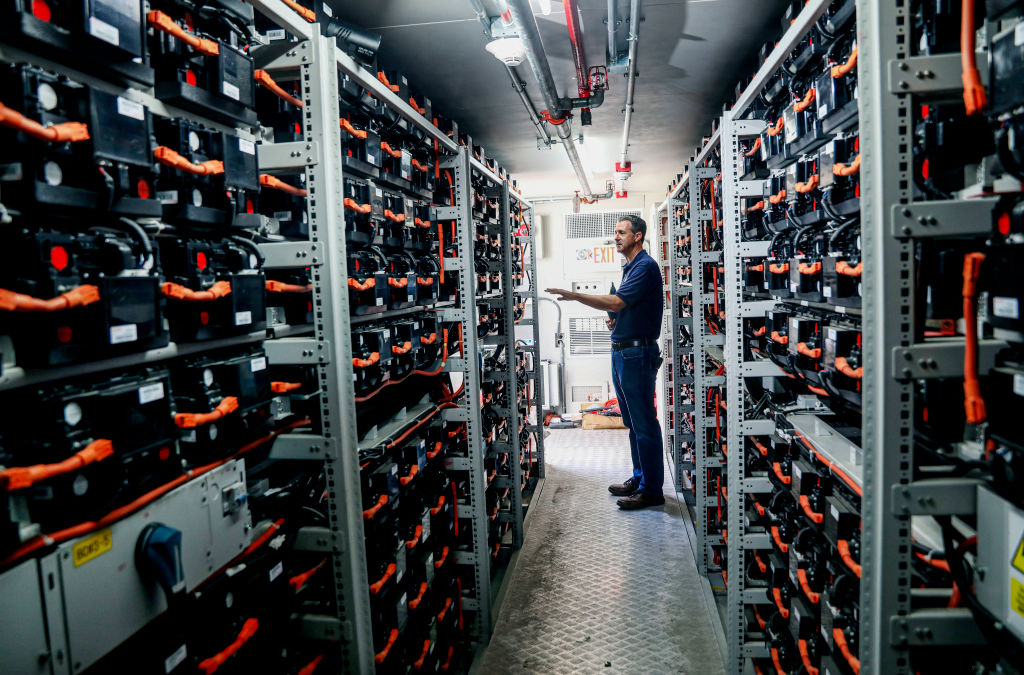US Schools Embrace No-Phone Policy for Distraction-Free, Mental Health-Focused Learning Experience
(Photo: Photo by Matt Cardy/Getty Images) BRISTOL, UNITED KINGDOM – FEBRUARY 26: A pupil uses his mobile phone for research during an English lesson at the Ridings Federation Winterbourne International Academy in Winterbourne near Bristol on February 26, 2015, in South Gloucestershire, England. Education, along with National Health Service and the economy are likely to be key election issues in the forthcoming general election in May.
Schools around the United States have progressively adopted a no-phone policy, requiring students to lock away their gadgets during the school day.
A CBS News report tells us that it is to promote a more focused and mentally healthy learning environment. The shift is driven by growing concerns about the impact of smartphones on students’ mental health and academic performance.
One notable example of this trend can be found at Newburgh Free Academy in New York. Students at this public high school start their day by placing their phones in specially designed pouches that remain locked for seven hours, even during lunchtime.
The initial introduction of this policy at Newburgh four years ago sparked mixed reactions among students. Senior Tyson Hill initially considered starting a petition to oppose it.
However, over time, he found himself appreciating the benefits of a phone-free school. “Coming from a school where phone bans weren’t enforced, I was still using my phone. I was constantly on it,” Hill admitted.
Read Also: How to Protect Yourself Against Cybersecurity Attacks While Gaming [2023]
Teachers at Newburgh have also noticed significant changes in student behavior. The hallways are filled with students who walk with their heads up, engaging with one another, and the cafeteria is alive with conversation and laughter.
The rise of no-phone policies in schools aligns with growing concerns about children’s mental health and the role of technology in exacerbating these issues.
Before the COVID-19 pandemic, the Centers for Disease Control and Prevention reported a 40% increase in feelings of persistent sadness, hopelessness, and suicidal thoughts among students. Notably, test scores, especially in math for grades 4 and 8, experienced their most substantial decline on record.
Social psychologist and author Jonathan Haidt believes smartphones, including their social media and messaging apps, are at the root of this problem. He argues that phones have transformed from simple communication tools into constant sources of distraction.
Ebony Clark, assistant principal at Newburgh Free Academy, pointed out that phones can also pose safety risks in emergency situations. “If there’s an emergency, an active shooter, that phone going off makes them a target,” she explained.
A Closer Look at the Restrictions
According to the National Center for Education Statistics, in 2020, cellphone bans were in place in 76% of US schools. However, schools have adopted varying degrees of restrictions, with some adopting more comprehensive policies than others.
Concerns about student behavior and mental health drive the decision to implement strict no-phone policies.
Patrick Danz, an English teacher at Allen Park High School believes that any instructional benefits smartphones provide are outweighed by the problems and distractions they introduce into the classroom.
The National Education Association tells us that the extent of these bans varies, with some school leaders believing that a cellphone-free environment can lead to reduced incidents of cyberbullying, improved attendance, and decreased time spent on social media.
The primary goal is to enhance student engagement in the classroom, as research shows that cell phones are a significant distraction, even when not in use.
However, there is a need to strike a balance. Some experts caution against overly restrictive policies, emphasizing that the instructional benefits of cell phones are not entirely clear-cut.
While complete eradication of cell phones from school campuses may be unrealistic, they suggest that schools should adopt flexible and consistent policies.
Stay posted here at Tech Times.
Related Article: UN Raises Alarm on Overreliance of Technology in Classrooms
(Photo: John Lopez)
Tech Times
ⓒ 2023 TECHTIMES.com All rights reserved. Do not reproduce without permission.
Tags:

I have over 10 years of experience in the cryptocurrency industry and I have been on the list of the top authors on LinkedIn for the past 5 years. I have a wealth of knowledge to share with my readers, and my goal is to help them navigate the ever-changing world of cryptocurrencies.







